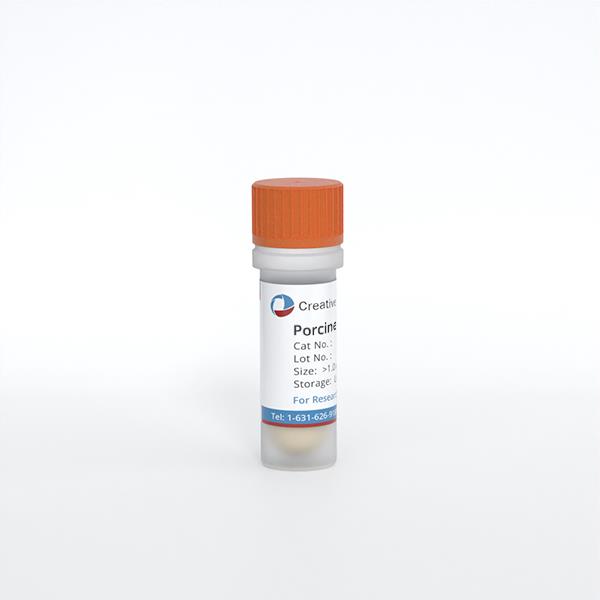Description
Porcine Liver Epithelial Cells from Creative Bioarray are isolated from liver tissue of porcine. Porcine Liver Epithelial Cells are grown in a T25 tissue culture flask pre-coated with gelatin-based coating solution for 2 min and incubated in Creative Bioarray’s Culture Complete Growth Medium for 3-5 days. Cells are detached from flasks and immediately cryo-preserved in vials. Each vial contains at least 0.5x10^6 cells per ml and is delivered frozen. Cells can be expanded for 3-7 passages at a split ratio of 1:2 under the cell culture conditions specified by Creative Bioarray. Repeated freezing and thawing of cells is not recommended.
Recommended Medium
Complete Epithelial Cell Medium
Storage and Shipping
We ship frozen cells on dry ice. Upon receiving, directly and immediately transfer the cells from dry ice to liquid nitrogen and keep the cells in liquid nitrogen until they are needed for experiments. Never can primary cells be kept at -20 °C.
Citation Guidance
If you use this products in your scientific publication, it should be cited in the publication as: Creative Bioarray cat no.
If your paper has been published, please click here to submit the PubMed ID of your paper to get a coupon.
Why does fetal bovine serum stored in the refrigerator appear to precipitate?
Some fetal bovine serum products are not pre-aged and when stored at 2-8°C, various proteins and lipoproteins (e.g., cold agglutinin, fibrinogen, boswellin, etc.) in the serum may aggregate and form precipitates or visible clouding. This should not affect the quality of the serum. Storage of fetal bovine serum at -20°C is recommended to avoid repeated freezing and thawing.


